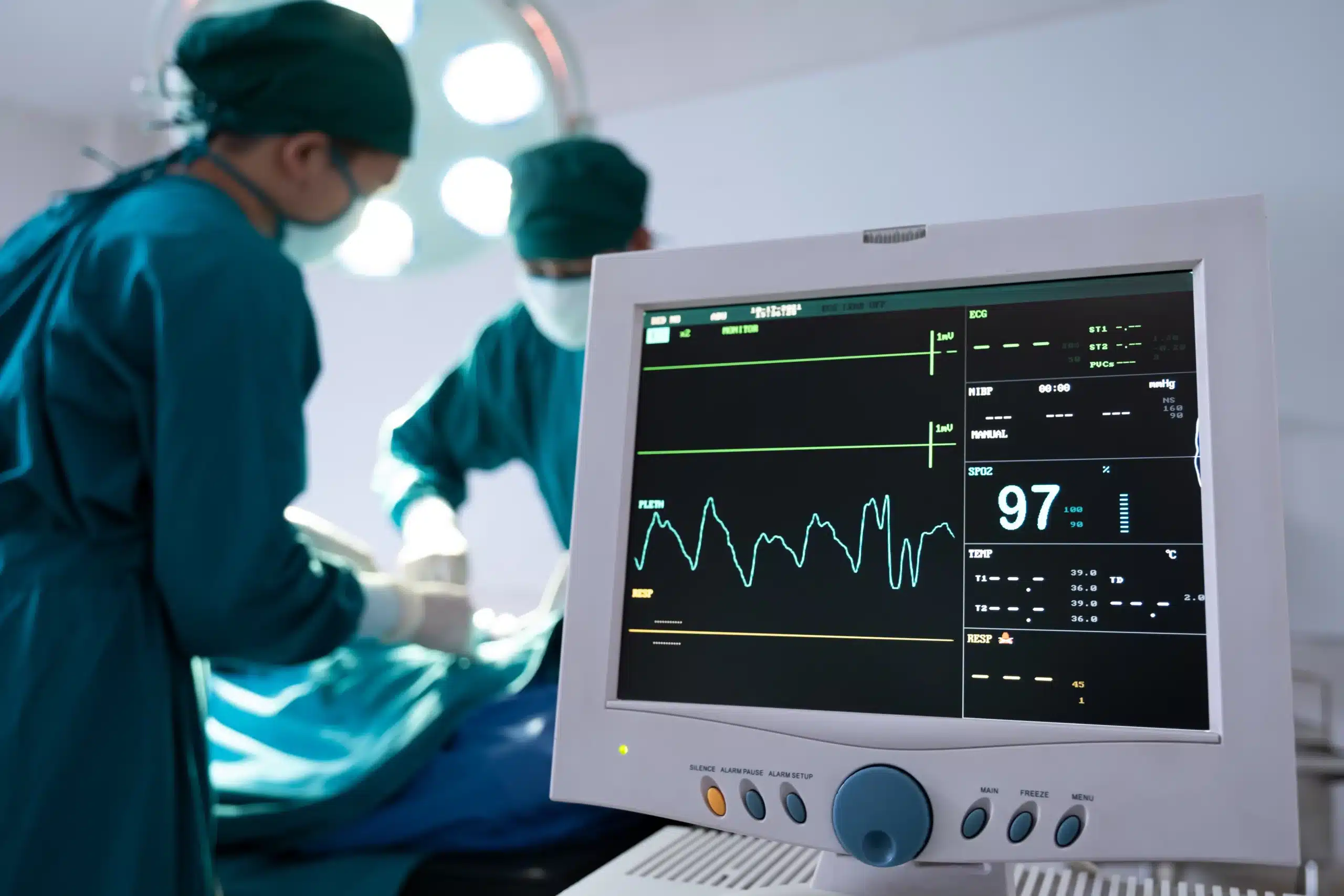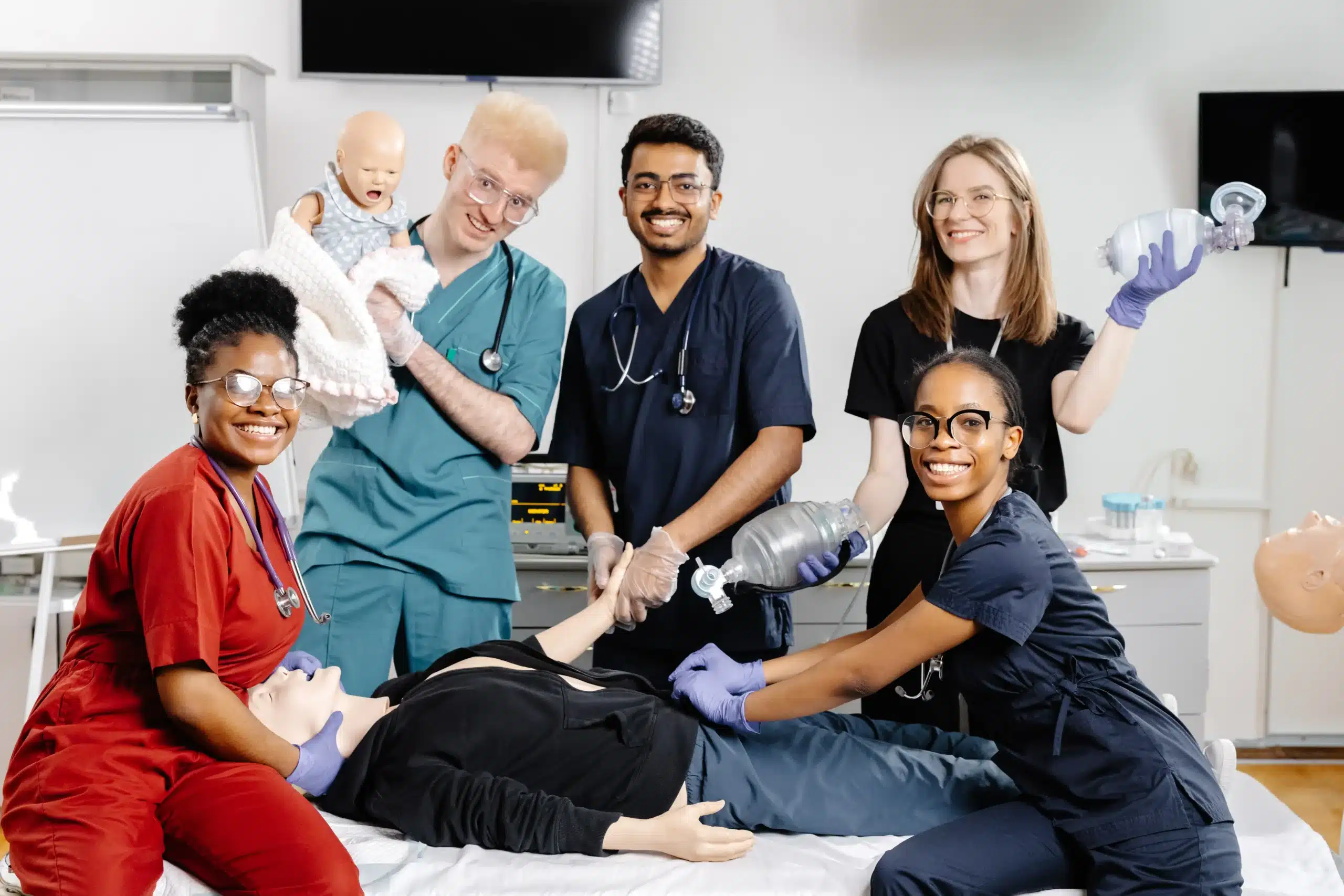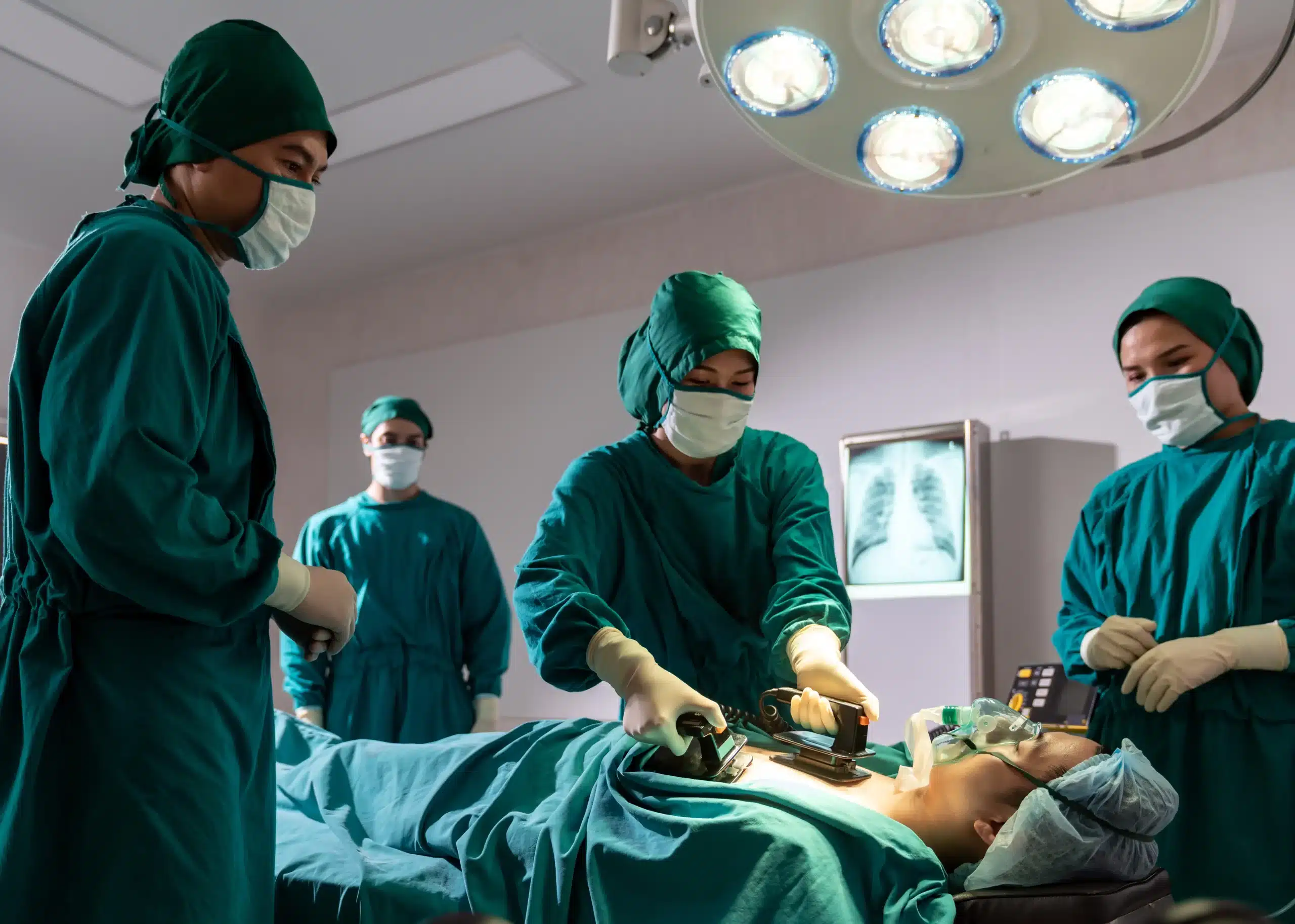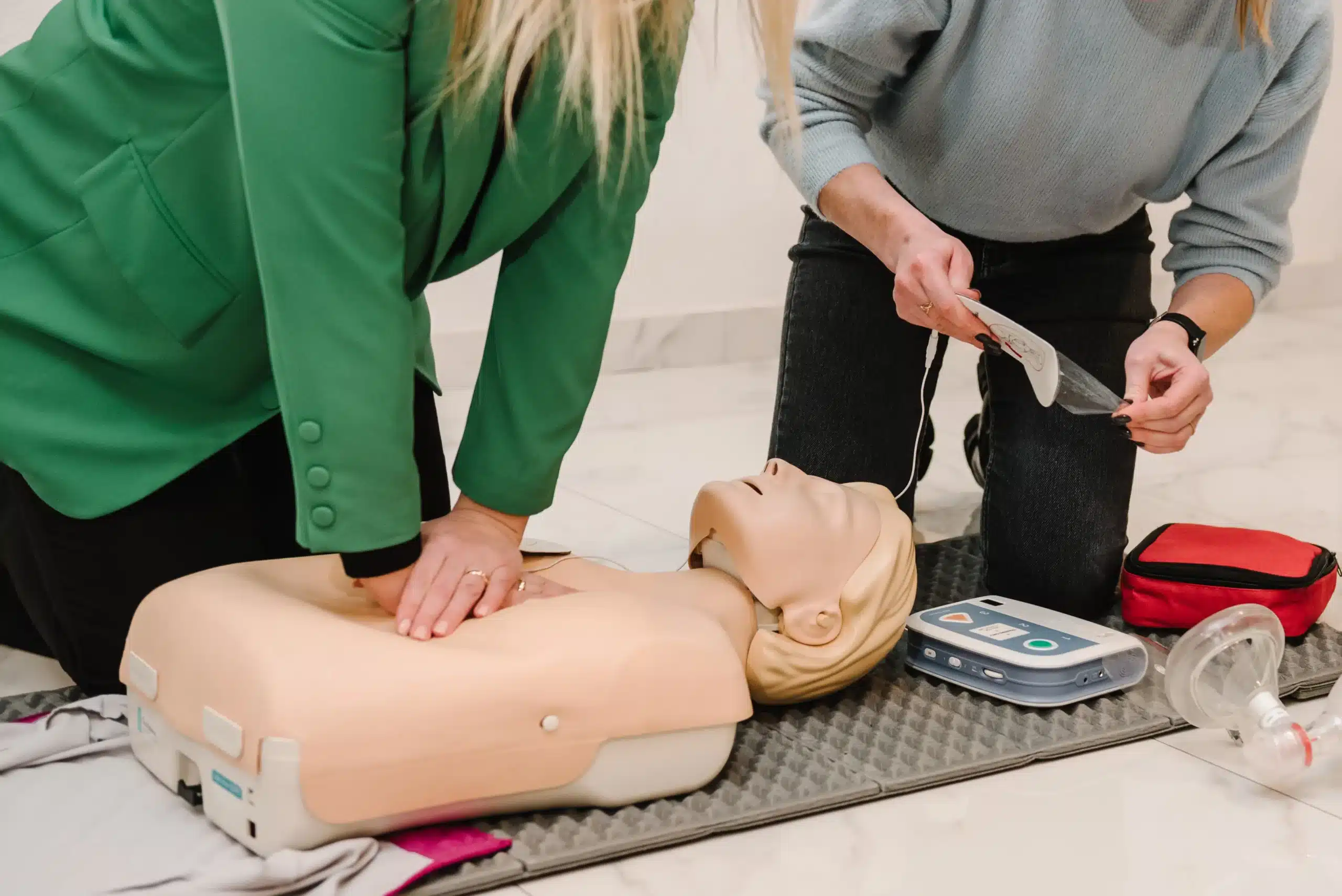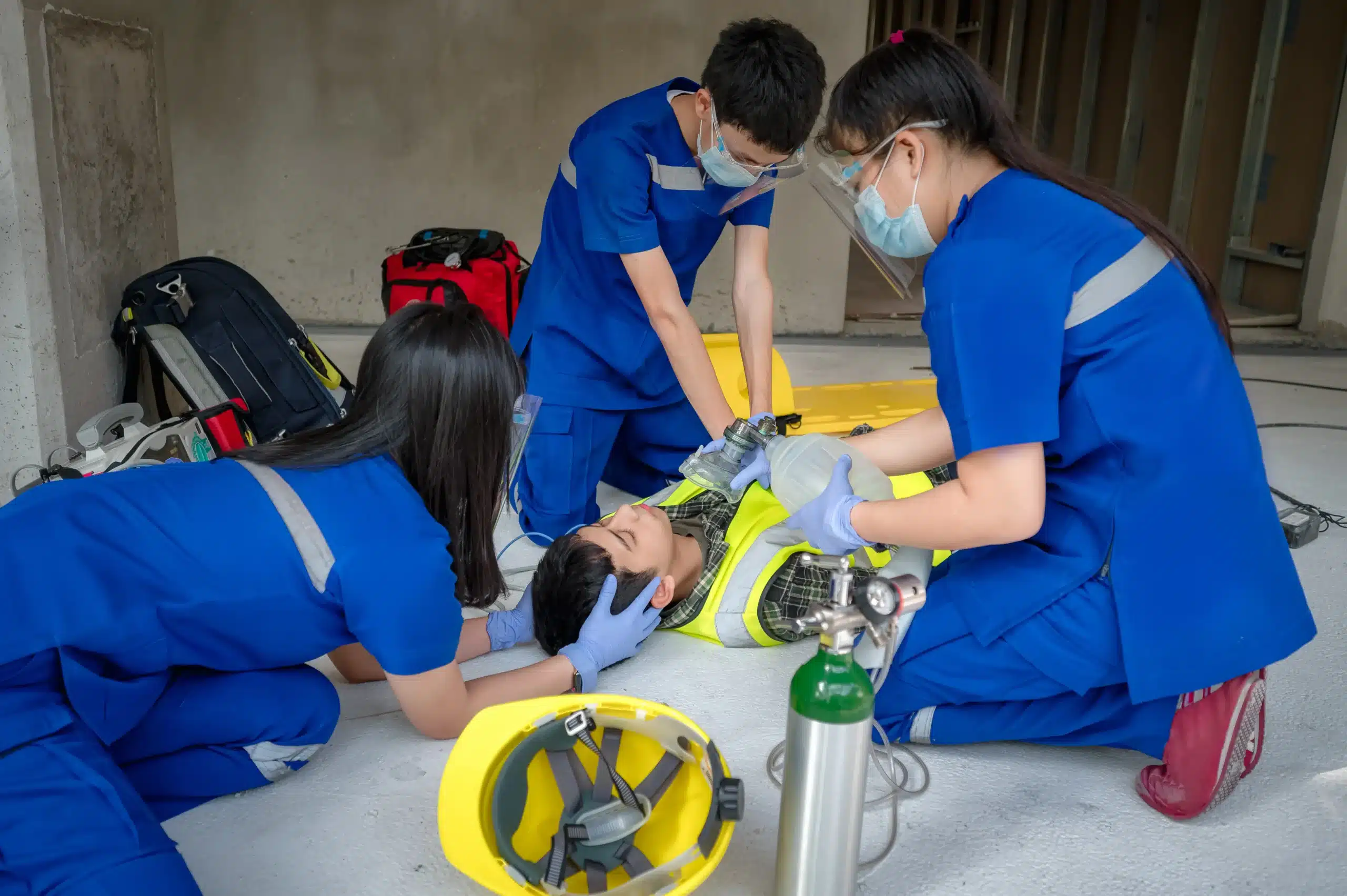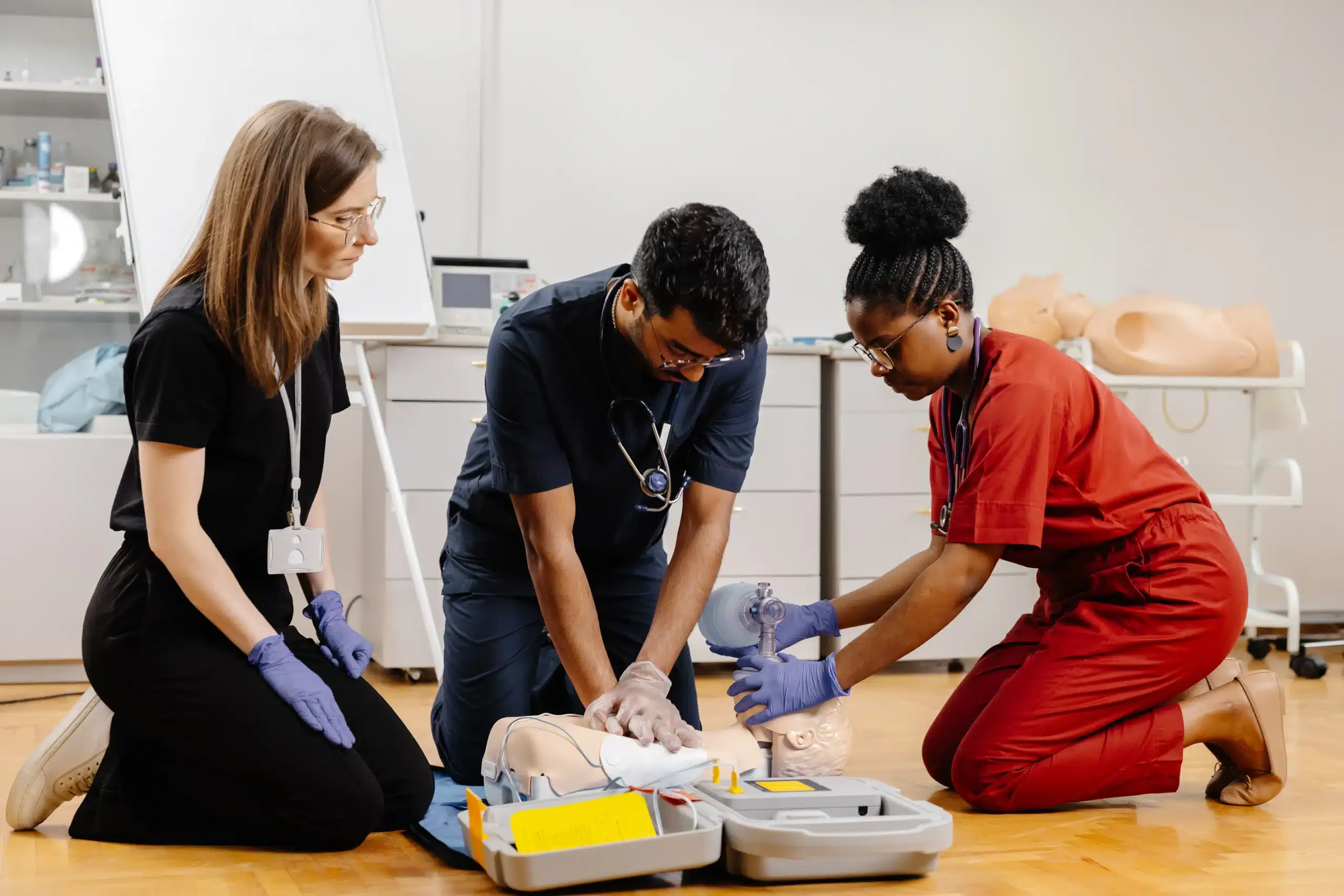Working with children brings unique joys and responsibilities, especially in healthcare. When a child’s health takes a critical turn, having the right training can make all the difference. Pediatric Advanced Life Support (PALS) certification empowers healthcare professionals to respond effectively to pediatric emergencies. This article serves as your comprehensive guide to PALS, exploring the key elements of this specialized training and highlighting the benefits of choosing Pediatric Advanced Life support courses in Brentwood. We’ll delve into the curriculum, discuss the importance of hands-on training, and outline the certification process. We’ll also review leading PALS providers in Brentwood, helping you find the perfect course to fit your needs and schedule.
Key Takeaways
- PALS certification equips you with life-saving pediatric skills: It’s a must-have for healthcare providers working with children, covering essential techniques for managing pediatric emergencies. Find a course that combines online learning with hands-on practice.
- Brentwood offers convenient and flexible PALS training options: Courses are available throughout the week to accommodate busy schedules. Consider factors like cost, location, and the blend of online and in-person components when choosing a course.
- Maintain your PALS certification through recertification and continuing education: Staying up-to-date with the latest guidelines ensures you can provide the best possible care. Utilize resources like the American Heart Association website and trusted training providers to stay informed.
What is PALS?
PALS (Pediatric Advanced Life Support) is a specialized course designed to equip healthcare professionals with the skills to respond effectively to medical emergencies in children. This training focuses on advanced life support techniques tailored to pediatric patients, from infants to adolescents. The goal is to ensure healthcare providers can handle critical situations involving young patients with confidence and expertise. PALS certification covers a wide range of life-saving interventions, including recognizing and managing respiratory and cardiac emergencies.
Core PALS Training Components
PALS courses cover essential topics like recognizing and managing respiratory and cardiac emergencies in children. The curriculum blends classroom instruction with hands-on practice using medical equipment. Realistic simulations of emergency scenarios give participants practical experience in a safe learning environment. This comprehensive approach prepares healthcare providers to act swiftly and decisively in real-life crises. For example, participants will learn how to assess a child’s airway, breathing, and circulation (ABCs) and how to perform CPR and other life-saving interventions. They will also learn how to use specialized equipment, such as defibrillators and ventilators. Learn more about PALS training.
Why Healthcare Professionals Need PALS
PALS certification is crucial for any healthcare provider working with children. It empowers them to identify and respond to life-threatening emergencies, improving the quality of care they deliver. This specialized training enhances their ability to provide immediate care and builds confidence in their decision-making during critical moments. Whether you’re a doctor, nurse, or other healthcare professional, PALS is an invaluable asset in your toolkit. Explore the benefits of PALS training. It demonstrates a commitment to providing the highest standard of care for young patients.
Key Features of Brentwood PALS Courses
Curriculum Overview
PALS (Pediatric Advanced Life Support) courses equip healthcare providers with the skills to manage pediatric emergencies. Think of it as advanced first aid, tailored specifically for children. The PALS curriculum covers essential life-saving interventions, including respiratory and cardiac emergencies, shock, and other critical situations. Courses blend classroom instruction with hands-on practice and realistic simulations, ensuring you gain both theoretical knowledge and practical experience.
Hands-on Training
Brentwood PALS courses prioritize hands-on training to build confidence and competence. Experienced healthcare professionals lead the sessions, creating a supportive learning environment. A key aspect of the training involves realistic simulations and real-life scenarios. This immersive approach, combined with instruction from experienced healthcare providers, helps you develop the skills and confidence to apply your knowledge effectively during actual emergencies. The focus on practical application ensures you’re prepared to respond confidently and efficiently when facing pediatric emergencies.
Certification Process
The PALS certification process is straightforward. The course fee typically includes the online class, the skills test, and your official AHA PALS provider card. This card validates your certification, which is valid for two years. Upon successful completion of the course and skills test, you’ll receive a digital PALS certification card. This two-year certification demonstrates your proficiency in pediatric advanced life support. More information on PALS certification is readily available. You can expect clear communication about the process throughout the course, ensuring a smooth and efficient experience.
Top Brentwood PALS Providers
Finding the right Pediatric Advanced Life Support (PALS) course is crucial for healthcare professionals. Here’s a look at some of the leading PALS providers in Brentwood:
Safety Training Seminars
Safety Training Seminars, a woman-owned AHA Training Center, offers high-quality American Heart Association courses, including PALS, right here in Brentwood. They focus on providing convenient and affordable training for healthcare providers in the local community, including Antioch, Brentwood, and Concord. Learn more about their PALS certification.
Brentwood CPR Training Center
The Brentwood CPR Training Center offers various AHA-certified CPR and advanced life support courses, serving Brentwood and Contra Costa County. They provide a range of options to fit the needs of busy professionals.
SureFire CPR
SureFire CPR provides American Heart Association (AHA) PALS certification courses for healthcare professionals. They offer initial and renewal courses, with both in-person and hybrid online/in-person options available. This flexibility makes it easier to fit PALS training into your schedule.
American Heart Association
While the American Heart Association doesn’t directly offer courses, they set the standards for PALS training. You can find AHA PALS classes in Brentwood through various authorized training centers. Understanding the AHA’s role is key to ensuring you receive a recognized certification.
Local Hospitals and Medical Centers
Many local hospitals and medical centers offer training programs, often incorporating programs like RQI to train their staff and maintain high-level CPR skills among healthcare providers. Contact your local hospital or medical center to inquire about PALS training opportunities.
PALS Course Costs & Value
Getting your Pediatric Advanced Life Support (PALS) certification is an investment in your career and the lives of your young patients. But how much does it cost, and what value does it bring? Let’s break down the expenses and return on investment for PALS certification.
Initial Certification Costs
The initial PALS certification typically costs between $205 and $290. This price usually covers the online portion of the course, the in-person skills session, and your official American Heart Association (AHA) PALS provider card upon successful completion. For instance, Safety Training Seminars offers the PALS course for $290, including everything you need to get certified.
Renewal Fees
Renewing your PALS certification is generally less expensive than the initial certification, often falling between $155 and $160. This lower cost makes it easier for healthcare providers to maintain their certifications and stay up-to-date with the latest life-saving techniques.
Group Discounts
If you’re coordinating training for a group of colleagues or your entire staff, take advantage of group discounts. Many training centers offer customized group training sessions for corporations, covering essential certifications like CPR, First Aid, ACLS, PALS, and NRP. These group rates can significantly reduce the per-person cost, making it a budget-friendly option.
ROI for Healthcare Professionals
The return on investment for PALS certification goes beyond the monetary aspect. For healthcare professionals, confidently and effectively responding to pediatric emergencies is invaluable. PALS training equips you with the skills and knowledge to provide high-quality care, potentially saving lives. This expertise enhances your professional skills and demonstrates your commitment to patient well-being, making PALS certification a worthwhile investment in your career and the community you serve.
PALS Course Schedules & Flexibility
Juggling work, family, and continuing education can be tricky. That’s why flexibility is key when choosing a PALS course. Thankfully, PALS courses in Brentwood are designed with busy professionals in mind. Let’s break down how the scheduling works.
Course Timelines
The PALS course blends online learning with in-person skills practice. You’ll start with the online HeartCode PALS portion, which typically takes 3–4 hours to complete. This self-paced format lets you work through the material when it’s convenient for you. Once you’ve finished the online modules, you’ll schedule a short, in-person skills session (about 30–40 minutes) to demonstrate your proficiency.
Scheduling Options
Finding a PALS course that fits your schedule shouldn’t be a struggle. Brentwood offers PALS classes seven days a week, Monday through Sunday, from 7 am to 6 pm. This wide range of availability makes it easier to find a time slot that works, even with the most demanding schedules. Check with your chosen provider for their specific course calendar and available dates.
Online vs. In-Person
The blended learning format of HeartCode PALS gives you the best of both worlds. The online component offers the convenience and flexibility of self-paced learning, allowing you to study anytime, anywhere. The in-person skills session ensures you get the hands-on practice and personalized feedback necessary to confidently apply your knowledge in real-world scenarios. This approach is ideal for healthcare providers who need a practical and adaptable learning experience.
What to Expect in a PALS Course
This section outlines the typical format of a PALS course, from the initial learning modules to the final certification process. Understanding the structure and expectations will help you prepare and make the most of your training.
Course Structure
PALS courses blend online learning with hands-on skills practice and testing. The online portion typically requires three to six hours, offering flexibility to fit your schedule. This online component covers essential knowledge and concepts, laying the groundwork for the in-person session. For more insights into PALS course structures, check out Walnut Creek CPR Classes.
Skills and Scenarios
A core element of PALS certification involves simulations and real-life scenarios. These exercises provide a safe environment to practice essential skills and decision-making processes crucial for pediatric emergencies. PALS St. Louis emphasizes hands-on practice with pediatric-specific equipment, building confidence for real-world application. You’ll work through various emergency scenarios, applying your knowledge and honing your responses under the guidance of experienced instructors. This immersive approach helps providers develop the confidence to effectively intervene in real emergencies, as highlighted by Intensive Medical.
Assessment and Certification
Your PALS training culminates in an assessment to evaluate your understanding and practical skills. Successful completion earns you a two-year American Heart Association (AHA) certification card, often provided digitally. For details on PALS certification, including continuing education (CE) credits, visit Surefire CPR. This certification validates your expertise in pediatric advanced life support and demonstrates your commitment to providing high-quality patient care.
Benefits of Brentwood PALS Courses
Choosing to pursue PALS certification in Brentwood offers several key advantages for healthcare providers. Beyond the core skills, the certification itself opens doors and provides a foundation for career growth. Let’s explore some of the benefits.
Career Advancement
PALS certification is often a requirement for jobs in pediatric critical care and emergency medicine. It signals to employers your dedication to providing high-quality patient care and staying up-to-date with the latest life-saving techniques. Earning your PALS certification demonstrates a commitment to professional development, making you a more competitive candidate. It can also be a stepping stone to further specialization.
Improved Patient Care
The core purpose of PALS is to equip healthcare providers with the knowledge and skills to effectively manage pediatric emergencies. Through PALS training, you’ll learn to quickly assess and respond to life-threatening situations involving infants and children. This translates directly to improved patient outcomes and a higher standard of care. The focus on age-specific considerations ensures you’re prepared to handle the unique challenges of pediatric emergencies.
Confidence in Emergencies
Facing a pediatric emergency can be incredibly stressful. PALS courses use simulations and real-life scenarios to build your confidence in applying your skills under pressure. This hands-on training helps bridge the gap between theory and practice, allowing you to react decisively and effectively in critical moments. Knowing you have the training and certification to handle these situations provides invaluable peace of mind, allowing you to focus on providing the best possible care.
Prepare for Your PALS Course
Getting ready for your PALS course involves some prep work before you arrive. Knowing what to expect and how to prepare can make your learning experience smoother and more effective. Here’s a breakdown of how to get ready:
Pre-Course Study Materials
PALS courses blend online learning with in-person skills practice and testing. The online portion typically requires three to six hours, offering flexibility to fit your schedule. Brentwood CPR Classes recommends completing this online PALS component before your in-person session. This pre-course work introduces key concepts and procedures, allowing you to focus on hands-on skills development during the in-person training.
Equipment and Attire
For your in-person training, wear comfortable clothing, as you’ll be actively participating in simulations and scenarios. The emphasis on hands-on practice, as highlighted by PALS St. Louis, helps build confidence in applying these skills during real emergencies. While the course provides specific equipment, bring a notebook and pen for taking notes and jotting down questions.
Tips for Success
Participating in PALS training demonstrates your commitment to professional growth and patient safety, as noted by Heart Saver NY. To make the most of your PALS course, review the pre-course materials thoroughly. Come prepared to actively participate in discussions and simulations. Don’t hesitate to ask questions—clarifying any uncertainties early on will solidify your understanding. The goal is to build your confidence and competence in pediatric advanced life support. Taking these steps will help you achieve just that.
Maintain Your PALS Certification
Earning your PALS certification is a significant achievement, but staying current is essential for providing the best possible care. This involves understanding the renewal process, taking advantage of continuing education, and keeping up with guideline updates.
Renewal Process
PALS certification is valid for two years. To maintain your credentials, recertify before it expires. This usually involves completing a PALS renewal course covering essential skills and knowledge. Plan ahead and schedule your renewal course to avoid lapses in certification. Contact your employer or a recognized provider like Safety Training Seminars for available renewal courses in Brentwood.
Continuing Education
Beyond recertification, continuing education (CE) is invaluable for expanding your knowledge and skills. Many organizations offer CE credits related to PALS and other advanced life support certifications. These opportunities allow you to explore specific areas of pediatric care, learn about new research and best practices, and refine your expertise. Check with your certifying body or licensing board for approved CE providers and relevant courses. Continuing education can also contribute to professional development and career advancement.
Guideline Updates
Staying informed about PALS guideline updates is crucial for providing effective and evidence-based care. These updates, often driven by advancements in research and medical practice, may introduce new algorithms, medications, or treatment approaches. The American Heart Association periodically releases updated PALS guidelines, so review and incorporate these changes into your practice. Staying current ensures you’re prepared for pediatric emergencies with the most up-to-date knowledge. Find information on the latest updates on the American Heart Association website or through reputable providers like Safety Training Seminars.
Recent PALS Course Improvements
The American Heart Association regularly updates its courses to reflect the latest scientific evidence and best practices in pediatric care. These improvements help healthcare providers deliver the highest quality of care during pediatric emergencies. Here’s a look at some recent key enhancements to the PALS course:
New Educational Design
The PALS course now features a clearer, more streamlined educational design. Think easy-to-understand learning objectives, helpful instructor tips, and specific actions represented by icons. These updates make the learning process more efficient and effective for everyone. Plus, new lesson plans support instructors teaching the PALS Course, the PALS Update Course, and the HeartCode® PALS blended learning course. This ensures consistency and quality across all PALS training formats. For more details, check out the 2015 Guidelines PALS Instructor-Led Training FAQ.
Pre-Course Self-Assessment
To make sure everyone starts with a solid foundation, there’s now a mandatory pre-course self-assessment. You’ll need to score at least 70% before attending the course. This helps identify any knowledge gaps early on and allows you to focus on areas where you might need a refresher. This pre-course prep ensures you’re ready for the more advanced concepts. The FAQ offers further details on this requirement.
Updated Case Studies
The PALS course now includes new case discussion videos and updated case scenarios, known as “Megacode.” These realistic scenarios give you the chance to apply your knowledge and skills in simulated emergency situations. Practicing with these updated cases helps build your confidence and prepares you to handle real-life pediatric emergencies.
Open Resource Exam
The PALS exam is now open resource, meaning you can refer to your course materials during the 50-question test. This approach encourages a deeper understanding of the material, not just memorization. It allows you to apply the information you’ve learned, which is essential for real-world situations.
Adaptive Learning
The online portion of the HeartCode PALS course now features adaptive learning. This means the time it takes to complete the online modules adjusts based on your existing knowledge and experience. This personalized approach makes learning more efficient and engaging for everyone, regardless of their background. The American Heart Association provides more information on the various PALS Course Options available.
Related Articles
- Pediatric Advanced Life Support (PALS) in Antioch – Brentwood CPR Classes
- Pediatric Advanced Life Support (PALS) in Concord – Brentwood CPR Classes
- Online PALS Classes in Brentwood: Your Certification Guide – Brentwood CPR Classes
- PALS HeartCode Brentwood: A Certification Guide
- BLS ACLS PALS Training: Your Ultimate Guide – Brentwood CPR Classes
Frequently Asked Questions
What is the difference between PALS and BLS?
While both PALS and BLS teach life-saving techniques, BLS (Basic Life Support) focuses on fundamental CPR and first aid skills for all ages. PALS (Pediatric Advanced Life Support) builds upon this foundation, providing advanced life support techniques specifically for infants and children. PALS delves deeper into the physiological differences between children and adults, addressing specialized interventions for pediatric emergencies.
How long does it take to get PALS certified?
The PALS course typically involves a blended learning approach, combining online coursework with an in-person skills session. The online portion usually takes 3-6 hours to complete at your own pace. The in-person skills check and testing takes approximately 1-2 hours. This flexible format allows you to fit the training into your busy schedule.
How long is my PALS certification valid?
Your PALS certification is valid for two years from the date of successful completion. To maintain your credentials and stay up-to-date with the latest guidelines, you’ll need to complete a PALS renewal course before your current certification expires.
Where can I find PALS courses in Brentwood?
Several reputable providers offer PALS courses in Brentwood, including Safety Training Seminars, Brentwood CPR Training Center, and SureFire CPR. You can also check with local hospitals and medical centers for available training opportunities. When choosing a provider, ensure they are an authorized American Heart Association Training Center to receive a valid certification.
Why is PALS certification important for healthcare providers?
PALS certification is crucial for any healthcare professional working with infants and children. It equips you with the specialized knowledge and skills to effectively manage pediatric emergencies, ultimately leading to improved patient outcomes. This certification demonstrates your commitment to providing high-quality care and enhances your professional credibility.


